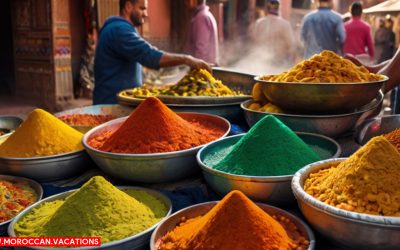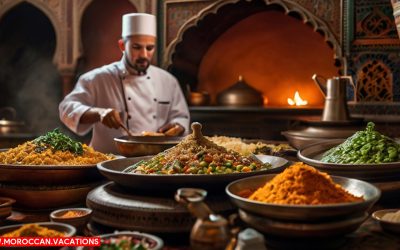Origins of Moroccan Cuisine
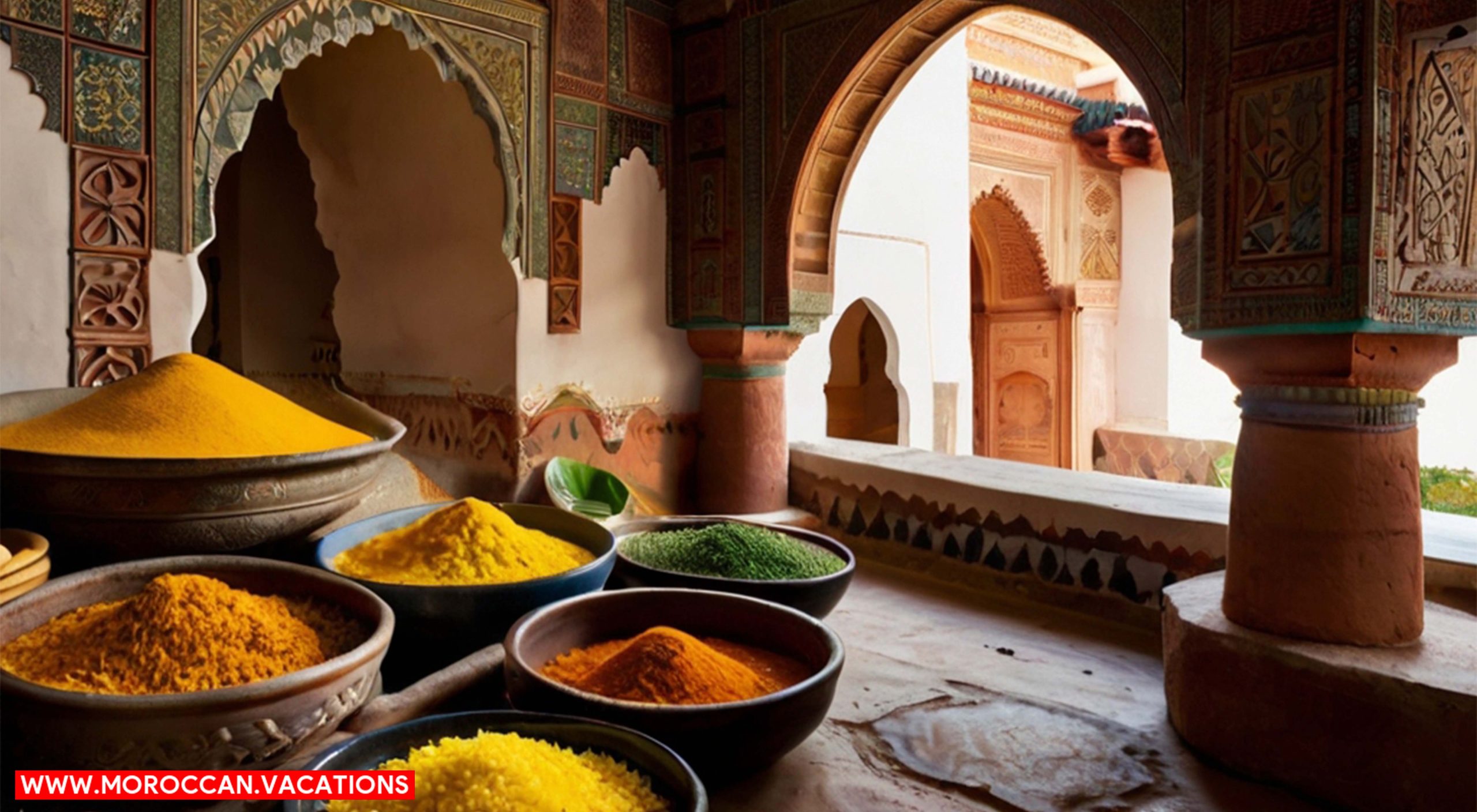

Step into the vibrant streets of Marrakesh and prepare to embark on a culinary journey unlike any other. From the aromatic spices that tickle your senses to the rich flavors that dance on your palate, Moroccan cuisine is a true feast for the adventurous food lover. In this article, we will explore the fascinating history and diverse influences that have shaped the distinctive dishes found in the bustling markets and cozy restaurants of Marrakesh. Get ready to discover the secrets behind the tantalizing flavors of Moroccan cuisine.
When exploring the origins of Moroccan cuisine, you will discover a rich and diverse culinary heritage that has been shaped by centuries of cultural influences. The evolution of Moroccan cuisine can be traced back to the indigenous Berber people. Traditional Moroccan dishes are a fusion of Berber, Arab, Andalusian, and Mediterranean flavors, resulting in a unique and vibrant gastronomy.
The Berber people, who have inhabited North Africa for thousands of years, laid the foundation for Moroccan cuisine. They relied heavily on the use of local ingredients such as couscous, olives, dates, and various spices. Over time, the Arab conquest of North Africa introduced new ingredients and cooking techniques, such as the use of aromatic spices like cumin, coriander, and cinnamon.
The influence of Andalusian cuisine is also evident in Moroccan cooking. When the Moors were expelled from Spain in the 15th century, they brought with them their culinary traditions, including the use of almonds, citrus fruits, and saffron. These ingredients found their way into Moroccan cuisine and continue to be used today.
The Mediterranean influence on Moroccan cuisine can be seen in the abundance of fresh seafood dishes, as well as the use of tomatoes, peppers, and olive oil. The proximity to the Mediterranean Sea has allowed for a flourishing seafood industry, with dishes such as grilled fish and seafood tagines becoming popular throughout the country.
Arab Influences on Moroccan Cuisine
The Arab influences on Moroccan cuisine have greatly contributed to the diverse and flavorful dishes found in Marrakesh. Through a cultural fusion of culinary traditions, Arab culinary practices have left an indelible mark on Moroccan cuisine, creating a unique blend of flavors and techniques.
One of the key aspects of Arab influence on Moroccan cuisine is the use of spices. Arab traders introduced a wide variety of spices to the region, including cinnamon, cumin, coriander, and saffron. These spices are used abundantly in Moroccan cooking, adding depth and complexity to dishes such as tagines and couscous.
Furthermore, Arab culinary traditions introduced new cooking methods to Moroccan cuisine. The technique of slow-cooking in a tagine, for example, was brought by the Arabs. This method allows flavors to meld together and creates tender, succulent dishes.
Another significant Arab influence is the use of ingredients such as dates, almonds, and figs in both savory and sweet dishes. These ingredients, which were traditionally used in Arab cuisine, have become staples in Moroccan cooking. The combination of sweet and savory flavors is a characteristic feature of Moroccan cuisine, and it is a result of the Arab influence.
The Arab influences on Moroccan cuisine have not only shaped the flavors and ingredients used, but have also contributed to the rich culinary heritage of Marrakesh. The fusion of Arab and Moroccan culinary traditions has created a cuisine that is vibrant, flavorful, and deeply rooted in history.
Berber Influences on Moroccan Cuisine
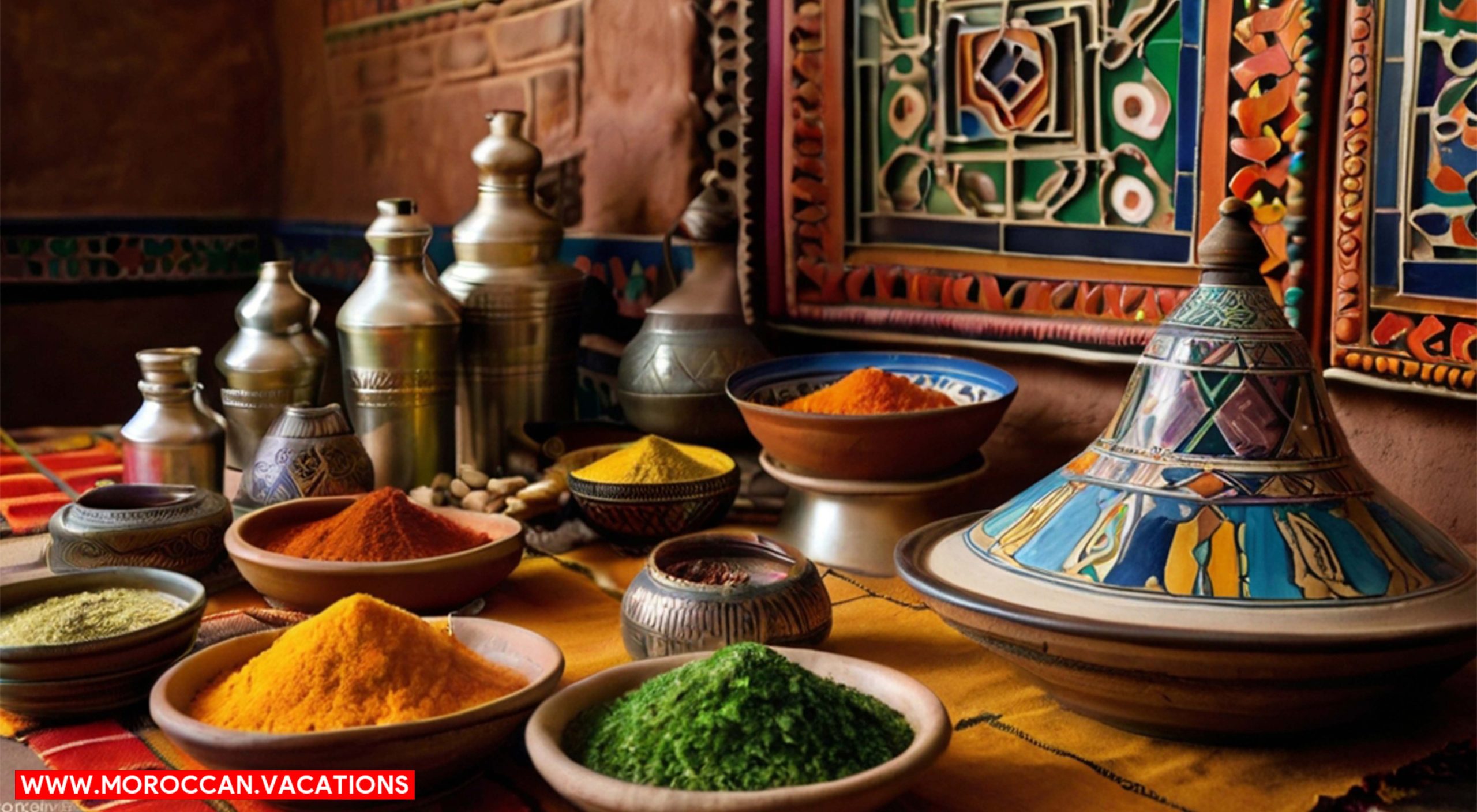

Berber culture played a significant role in shaping Moroccan cuisine in Marrakesh. The Berbers, who are the indigenous people of North Africa, have a rich culinary tradition that has greatly influenced the food in this region. One of the most notable aspects of Berber cuisine is the use of unique spices. Berber spices, such as cumin, coriander, and turmeric, are commonly used in Moroccan dishes, adding a distinct flavor and aroma. These spices are often combined with other ingredients, such as garlic, ginger, and saffron, to create complex and flavorful dishes.
Traditional Berber dishes also play a prominent role in Moroccan cuisine. One such dish is tagine, which is a slow-cooked stew made with meat, vegetables, and aromatic spices. Tagine is named after the traditional clay pot in which it is cooked, and it is a staple in Berber households. Another popular Berber dish is couscous, which is made from semolina grains and served with a variety of vegetables, meat, or fish. Couscous is not only a delicious and nutritious meal, but it also holds cultural significance in Berber celebrations and gatherings.
The Berber influences on Moroccan cuisine in Marrakesh are evident in the flavors, ingredients, and techniques used in the local dishes. By incorporating Berber spices and traditional Berber dishes, Moroccan cuisine has become a vibrant and diverse culinary experience. Whether you are exploring the bustling markets or dining in a local restaurant, you can expect to savor the rich and distinct flavors that are a result of Berber influences.
Mediterranean Influences on Moroccan Cuisine
You will find that Mediterranean influences have had a significant impact on Moroccan cuisine in Marrakesh. The close proximity of Morocco to the Mediterranean Sea has allowed for the exchange of culinary traditions and flavors between the two regions. The Mediterranean flavors have seamlessly blended with the rich and vibrant Moroccan cuisine, creating a unique fusion of tastes.
One of the key Mediterranean influences on Moroccan cuisine is the abundant use of olive oil. Olive oil is a staple in Mediterranean cooking and it has found its way into many traditional Moroccan dishes. It adds a distinct richness and depth of flavor to tagines, couscous, and salads.
Another Mediterranean influence is the use of tomatoes and other fresh vegetables. Moroccan cuisine has embraced the Mediterranean love for fresh produce and incorporates it into many dishes. The combination of juicy tomatoes, crisp cucumbers, and fragrant herbs creates a refreshing and vibrant flavor profile.
The Mediterranean influence can also be seen in the use of seafood in Moroccan cuisine. Coastal regions like Marrakesh have access to a variety of fresh seafood, such as fish, shrimp, and octopus. These ingredients are often used in tagines, grilled dishes, and savory pastries, adding a delightful taste of the sea to the Moroccan culinary repertoire.
French Influences on Moroccan Cuisine
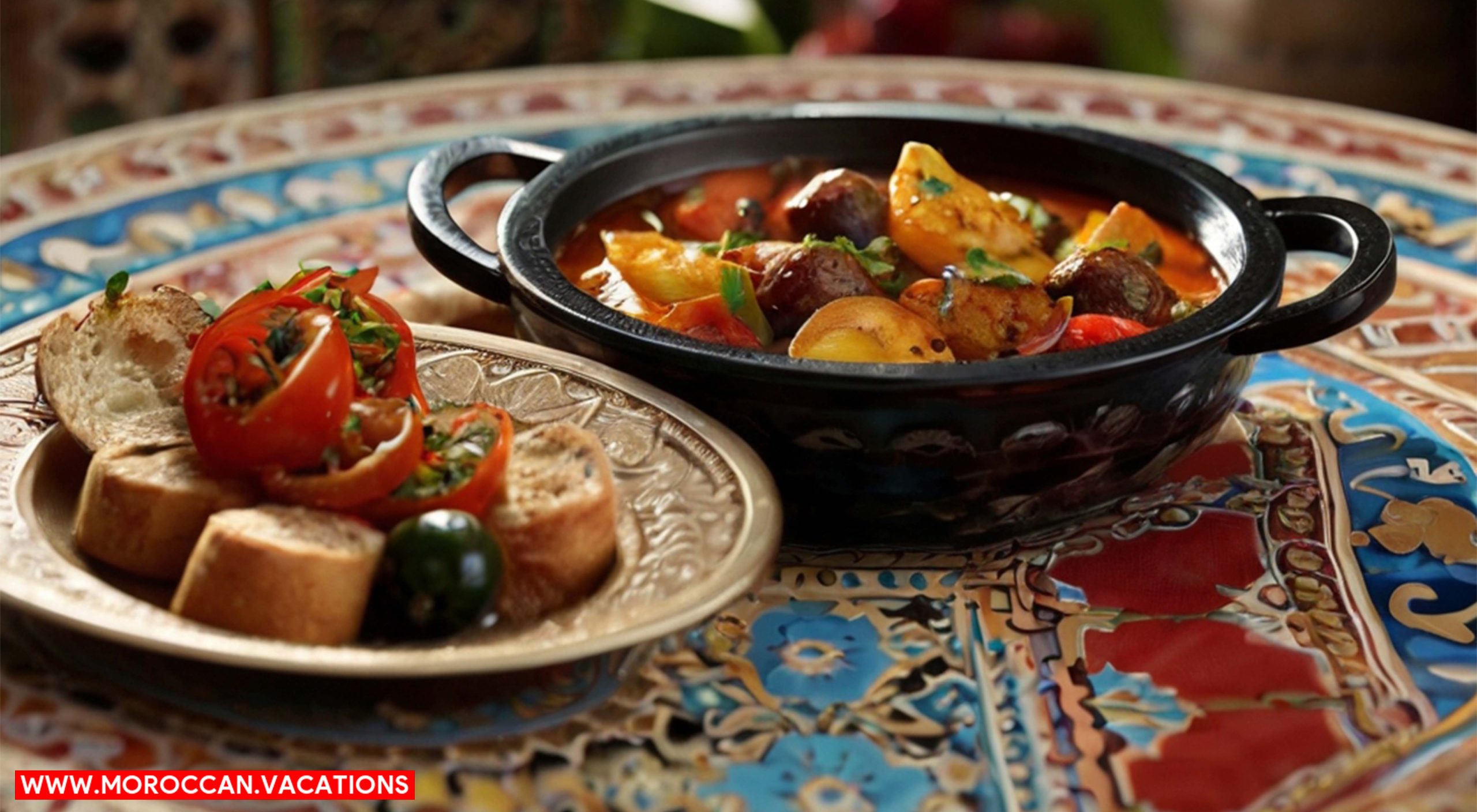

French culinary influence has greatly impacted the gastronomy of Moroccan cuisine in Marrakesh. The historical ties between France and Morocco have played a significant role in shaping the culinary landscape of the city. French colonization in the early 20th century introduced a wide range of cooking techniques and ingredients to Moroccan cuisine.
French culinary techniques such as sautéing, braising, and baking were incorporated into traditional Moroccan cooking methods, resulting in a fusion of flavors and textures. Moroccan chefs began to experiment with French ingredients like butter, cream, and wine, adding a new dimension to classic Moroccan dishes. The result was a harmonious blend of French and Moroccan flavors, creating unique fusion dishes that are now a staple in Marrakesh’s culinary scene.
One example of this fusion is the popular dish, “Pastilla,” which is a traditional Moroccan pie made with layers of flaky pastry filled with a savory mixture of meat, eggs, and spices. The French influence can be seen in the use of buttery puff pastry and the addition of almonds and powdered sugar on top, giving the dish a touch of sweetness.
French influences on Moroccan cuisine in Marrakesh have not only added depth and complexity to traditional dishes but have also paved the way for culinary innovation. The fusion of French and Moroccan flavors continues to evolve, as contemporary chefs in Marrakesh experiment with new techniques and ingredients, creating a vibrant and diverse culinary scene that reflects the city’s history and cultural richness.


Samira Amrani
The passionate author behind Moroccan Vacations, sharing her expertise and love for Moroccan culture, cuisine, and travel experiences to inspire wanderlust in every reader.
Related Articles
Vegetarian and Vegan Options in Marrakesh Street Food
Traditional Moroccan Vegetarian Tagines Are you tired of feeling limited when it comes to finding vegetarian and vegan options in Marrakesh's bustling street food scene? Well, we've got some good news for you! Get ready to embark on a culinary adventure filled with...
Street Food Safety Tips for Enjoying Marrakesh's Local Cuisine
Research Local Food Regulations Did you know that Marrakesh is home to a vibrant street food scene, offering a rich variety of local cuisine? To fully enjoy these culinary delights while ensuring your health and safety, it's important to follow a few simple tips. In...
The Influence of Arab Cuisine on Moroccan Culinary Traditions
Historical Background of Arab Influence Imagine yourself transported to the vibrant streets of Morocco, where the tantalizing aroma of spices fills the air and the sizzle of food cooking on open flames entices your senses. In this culinary paradise, the influence of...

